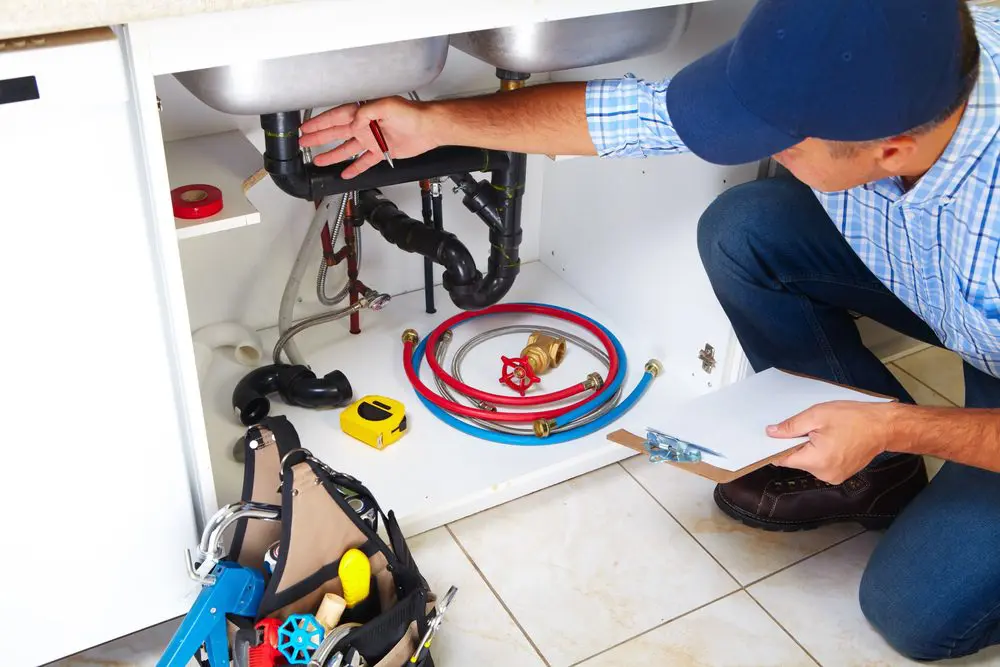This post following next about Don’t Let an Earthquake Damage Your Plumbing is fairly motivating. Give it a go and draw your own personal results.

The secret to long-term devices, unsurprisingly, is proper maintenance. There's no hard and fast guideline that can ensure your plumbing appliances a long wear, however you can stop unneeded damages and repair work by preventing poor plumbing practices.
You ought to stop doing these 6 things else you'll keep calling your plumber over for minor faults.
Flushing everything
Yes, your commode drainpipe causes the sewers, but that does not imply you need to discard simply anything away. Numerous 'flushable' products are really terrific obstruction starters, as an example dental floss. Asides maintaining noticeable non-flushable materials like cables and also plastics out of your toilet, you must additionally avoid flushing cotton swab, menstruation items, wipes, daipers and prophylactics down the bathroom drainpipe.
Putting oil in the sink
We know effectively throwing away grease after a hearty meal is a pain. But simply pouring it away can do long-lasting injury to your pipelines. "The fat and grease can block your drain severely sufficient to compel you to call a plumber," describes Dawson. "Plumbing functions best when it's well taken care of-- not abused with grease."
Utilizing way too much drainpipe cleaner
Utilizing a drain cleaner more than once or twice a month is an indicator that something significant is going on within your pipes. Now, instead of facing the primary issue, you opt for a quick fix; a carbonated drainpipe cleaner. Rightfully, a drainpipe cleaner will deal with the blockage, but at what cost?
The chemicals in a drainpipe cleaner can hasten the deterioration of your pipes. Include that to whatever underlying problem is triggering the obstruction as well as you might have to a serious trouble on your hands.
If you experience too many blockages, call your emergency plumber instead of using a drain cleaner.
Not rinsing recipes before packing them into the dish washer
it's called a dishwasher, yet tossing in meals, pots, as well as pans covered in large food bits can actually trigger some serious damages to the device, leading to long-term issues down the line. "House owners may need to obtain their dish washer repaired more frequently if they do not wash their dishes prior to filling, or at least eliminate larger food items," explains Audrey Monell, owner of Forrest Anderson Plumbing and AC in Glendale, Arizona. "Food that obtains stuck on recipes causes the dishwashing machine to work harder, which can wear down parts much faster, causing issues."
DIYing everything
With plumbing, a stitch in time really does conserve nine. You can protect against a fullblown plumbing emergency by calling your plumber at the correct time.
You might have found out a few plumbing hacks from your papa, however you should certainly understand where to draw the line as well as call an expert. As an example, you might be able to deal with a clog yourself, yet you shouldn't try to transform a pipeline. You could mismatch pipes or overtighten a bolt, creating even more injury and damage than you assumed. Calling a plumber is a secure and affordable decision.
Not altering your dish washer pipes
One very easy method to make certain that you utilize your dish washer for several years is to change the tube a minimum of once in five years. This likewise looks for cleaning device hoses.
Over time, food particles, soap and also grease can form obstructions within your pipelines. Replacing them promptly will protect against any type of presure develop that can damage the internal operations of your dishwasher or washing device.
An enhanced steel braided tube does a terrific task of lengthening your equipment's use time.
No winter safety measures
Severe weather conditions are bad for your pipes, specifically if they're made from steel. You must shield your subjected pipes, and your water storage tank, even if you have a water heater. You need to additionally shut off your garden hose shutoff and also any other external water channels. These networks are electrical outlets for chilly; you pipes can begin to ice up from outdoors if you do not.
Prevent Water Damage from Plumbing and Appliances
Prevent toilet failure
Be patient after you flush and wait for the valve to completely finish refilling the tank and bowl. If an overflow looks imminent, lift off the tank cover and lift the float to shut off water flow to the tank, and then turn off the supply valve.
Twice a year, inspect a toilet’s components, such as the fill, supply, and flush valves, and the supply line. Make sure you can turn off the supply. If you have older screw type valves that are hard to turn or start leaking, consider replacing them with simpler ball valves that are easy to shut off quickly.
Inspect and maintain your water heater
Inspect your anode rod every two years, or every year once the warranty has expired, to determine if it needs to be replaced.
Flush water heater tanks every six months to remove sediment by attaching a garden hose to the valve at the base. For safety, first turn off the power and run hot water until it is cool.
Get an annual inspection from a plumbing professional including the shut-off valve and all piping. Signs of broken valves and loose or wet joints and rust are a sign that more severe damage is coming.
Maintain washing machine supply lines
Look for signs the supply hose may be ready to fail—blisters in the hose, worn tubing, stress cracks, or a loose connection.
Replace the supply hose with a reinforced steel braided hose if it shows any sign of wear.
Tighten the connection if it feels loose. The most common site of failure is near the connection where the hose bends.
Replace supply hoses every five years, even if there is no obvious deterioration or wear. Some signs of deterioration may occur from the inside out and may not be visible until it is too late. When replacing washing machine supply hoses, always choose a reinforced steel braided hose over the traditional un-reinforced rubber hose. These hoses will last longer and are far less likely to result in a catastrophic water loss.
Prevent plumbing failure
Never pour grease down the drain.
Plant trees away from lateral drain lines to prevent roots from damaging piping.
If your home’s sewer system is connected to the city’s sewer system—a particular problem for older homes—or if you are located downhill or below street level, contact a plumbing professional to install a backflow prevention assembly into your sewer system.
Call a professional if you notice signs of a plumbing problem—an increased monthly water bill, banging pipes, rust stains, moisture in the walls or on the floor, and signs of wet soil erosion near the foundation.
https://disastersafety.org/maintenance/prevent-water-damage-from-plumbing-and-appliances/

Hopefully you enjoyed reading our excerpt on Can Hard Water Ruin Your Appliances?. Many thanks for taking a few minutes to browse our article post. Sharing is nice. You never know, you could be doing someone a favor. Bless you for your time. Visit again soon.
Give Me A Quote!
Comments on “Six Factors Behind Your Destruction In Your Plumbing Appliances”